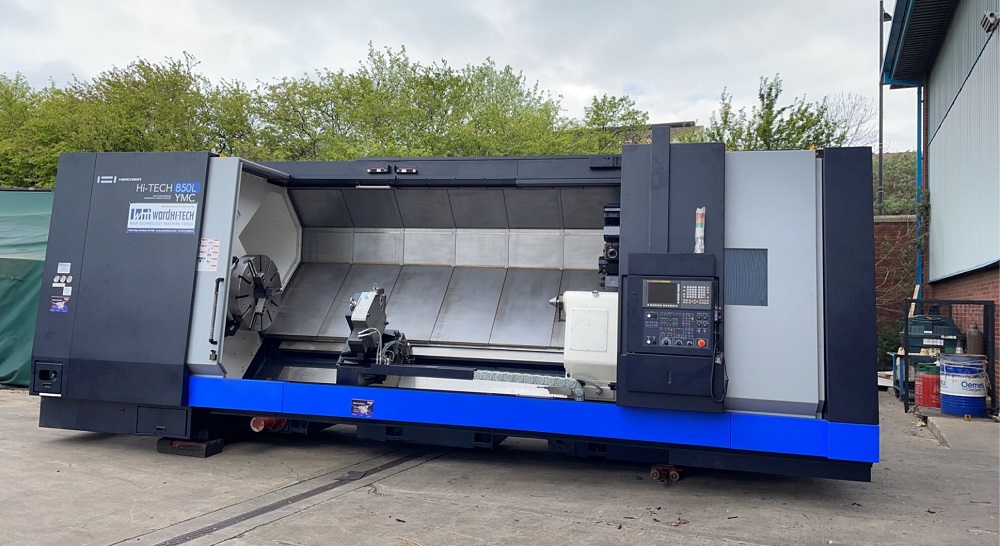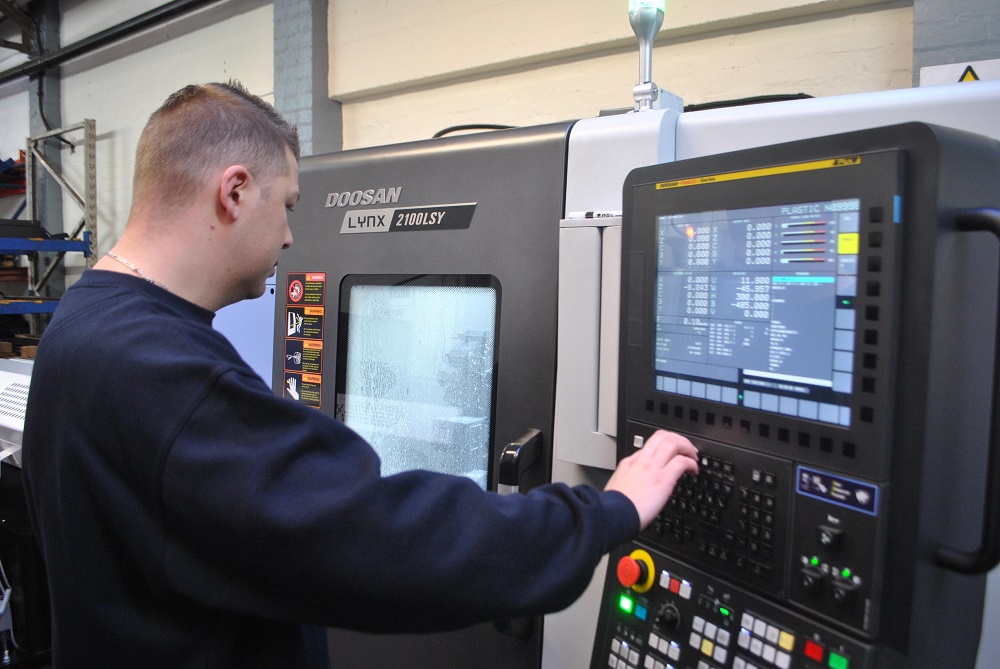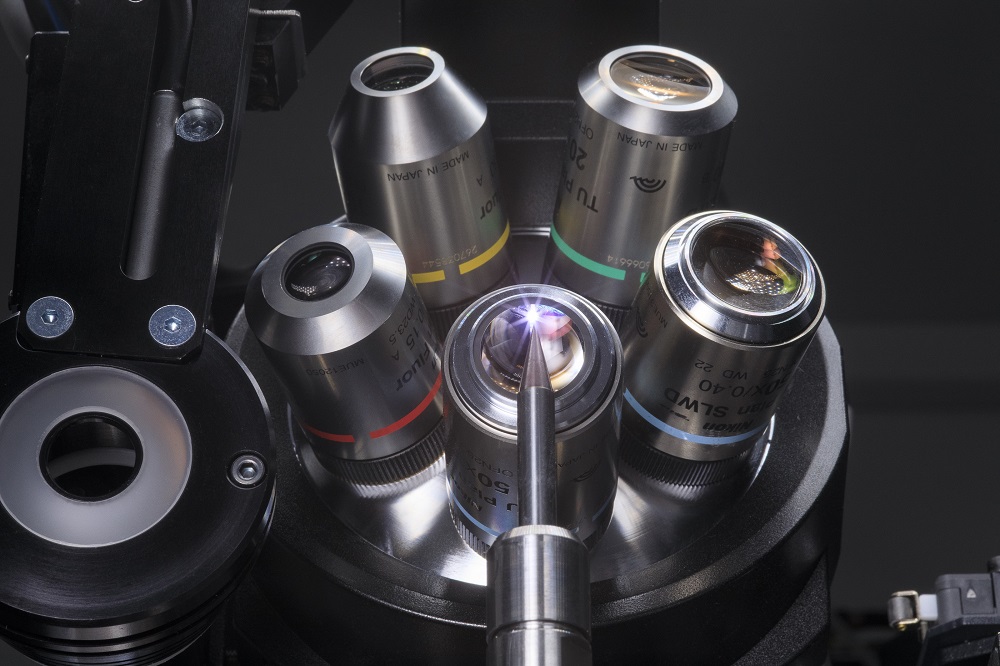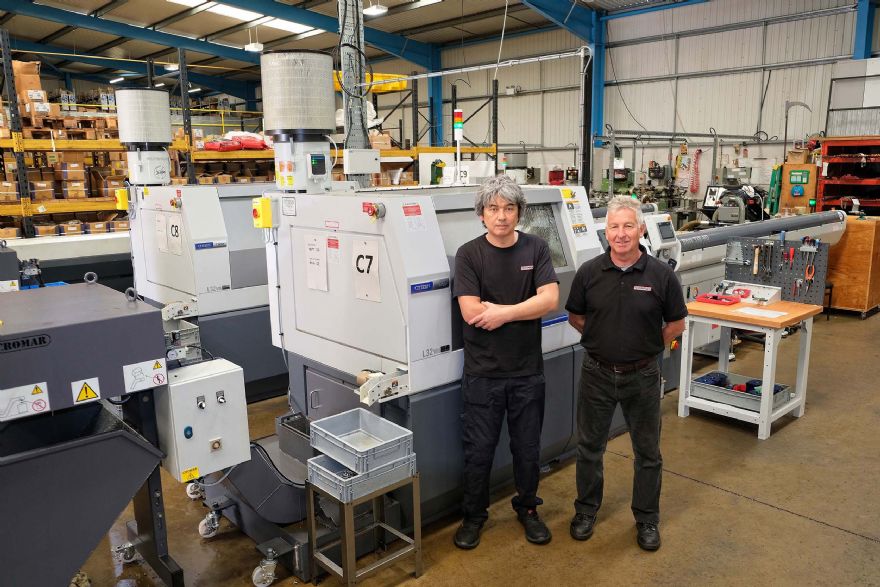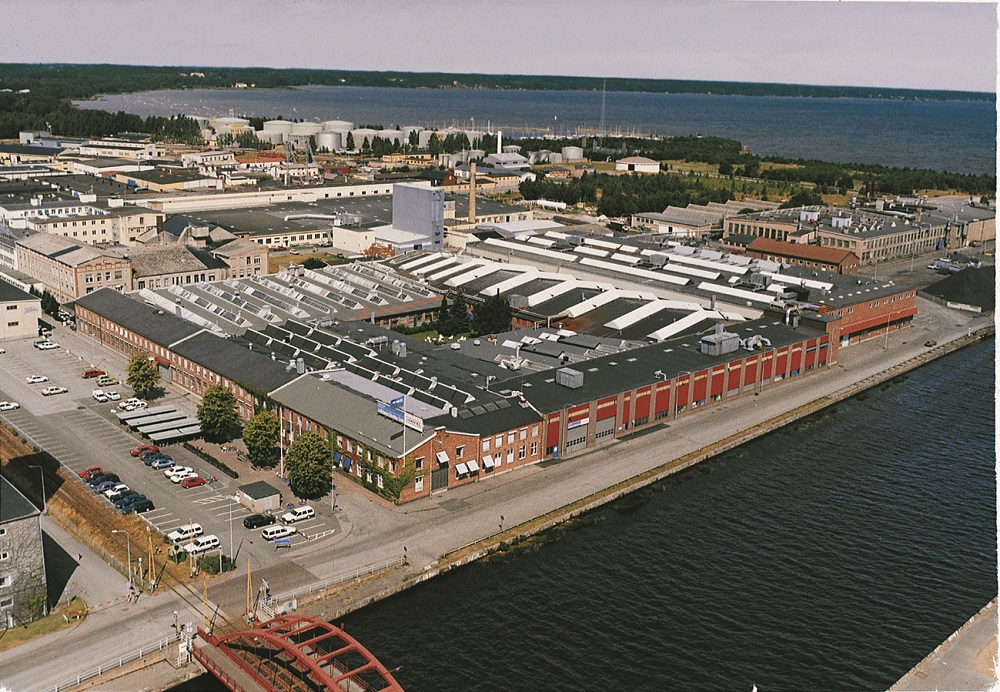Fastener manufacturer and turned parts subcontractor Technifast has transformed its business over the past three years, doubling the turnover generated by production of parts at its Corby factory to £120,000 per month. This outcome is despite the company employing two fewer people, now three including managing director Louis Speed, rather than five. Much of the increased business on the subcontract side, which accounts for half of turnover, comes from existing customers impressed at the high quality components produced on nine Citizen Cincom sliding-head turning centres.
Not only is turnover up but profitability has also increased. It is largely down to lights-out running using the latest 32 mm bar capacity Cincom lathes, two (soon to be three) of which are equipped with swarf conveyors and LFV (low-frequency vibration) software. The latter allows reliable, uninterrupted, unattended running, as it is not necessary to stop the machines to clear away stringy swarf that can damage components and shorten tool life.
More efficient turning is only part of the story, however. Many other production aids have been introduced under Speed’s ongoing goal “to make one improvement to the operation every day”. The past three years has seen investment not only in six new Cincoms, the final one due to arrive in March 2023, but a host of other equipment as well.
It includes Keyence non-contact measurement for first-off inspection, a burnishing machine from Cogsdill, three extra Escomatic coil-fed lathes to bring the number on site to seven (mainly used for turning simple, tight-tolerance stainless steel pins), a Sharmic vibratory bowl finishing machine filled with maize for polishing components, and a workstation positioned by every Cincom on the shop floor.
The period from 2019 to the present has accelerated Technifast’s progression from purely a fastener manufacturing company, started by Speed’s father John in 1990. Business prospered and Speed senior started responding to an increasing number of requests for precision-turned components. A succession of second-hand Cincom lathes arrived to fulfil the work. They were mainly of 20 mm capacity, plus a couple of 16 mm bar machines. Their continued arrival prompted a move in 2005 to much larger premises in Corby.
The first CNC lathe purchase, in 1992, was a Cincom L16. At the time, it was virtually impossible for Technifast not to buy this twin-spindle machine or a similar production lathe, as the company had just received an order for an unusually large quantity of 100,000 bespoke fasteners for which the Emi-Mec Sprint plug-board lathes on the shop floor were unsuitable.
Technifast continued to receive orders for parts in quantities from a few hundred up to 200,000 so, over the ensuing 16 years, 15 further Cincoms arrived, some of which are recent models that have replaced older versions. End users of the components produced in Corby are mainly in the classic motorbike, motorsport, horticulture and marine sectors.
The first lathe purchased from new was a Cincom L20-VIIILFV with a Mitsubishi control that allowed LFV operation. It arrived in 2018, after a 10-year gap in investment by Technifast, and was an eye-opener for Speed in three respects.The first surprise was the big improvement in dimensional accuracy, surface quality and repeatability compared with using second-hand machines. Notable also was the speed of changeover, as new machines are much faster to set, increasing spindle up-time and productivity. The third and most important aspect of the new lathe was the programmable LFV functionality.
“LFV is able to fragment long strands of swarf into shorter chips, avoiding entanglement in the cutting zone and preventing clogging of the working area,” says Speed.“It’s especially effective when turning, grooving, parting and drilling certain materials like stainless steel and plastics, which tend to generate stringy swarf.
He continues: “Even mild steel previously caused problems. For example, we could not leave drilling spacers to run overnight due to difficulty with swarf accumulation. Now, we have no problems with lights-out running. When producing parts requiring a short cycle time, the bar magazine has run out by the time we arrive the next morning.”
He adds that when turning some simpler parts, such as dowel pins, there is no need for LFV and we omit it from the program. It avoids the small reduction in productivity resulting from the short periods of air cutting when the tool oscillates away from the bar surface to break the chips. For the same reason, G-code turns off the function within a program if particular operations do not require it.
Two further 20 mm capacity Cincoms, A20-VIIsarrived in 2020 for the production of price-sensitive components, the advantage being that the machines cost less than L20-series sliders as they have a lower specification, and LFV is not included.
The first was already on the shop floor when the first Covid-19 lockdown was imposed, which was fortuitous as Technifast immediately received a large order for hand sanitiser components. The machine started running 24/7 to produce the components, half-paying for itself before the contract ended. Subsequently, towards the end of 2021, a third A20-VII arrived with a newly available FANUC control capable of running LFV programs.
In 2007, the firm started investing in 32 mm sliding-head capacity to avoid turning down contracts for parts over 20 mm diameter. As is frequently the case, once word got around that the company had new capacity, work built up in this size range.
Speed decided in mid-2021 to invest in an L32-VIIILFV to upgrade his 32 mm capacity. It was followed by a second in August 2020 and a third is on order, which is the machine mentioned earlier that is due for installation in March.
The first thing Speed noticed about the new generation of L32s is, as with the 20 mm lathes, how much quicker they are to set than the model he bought second-hand in 2007, which was built in 1999. A further advantage is that the Iemca Boss bar magazine feeding the latest lathes can comfortably handle stock down to 6 mm diameter with the requisite guide channel, whereas with the earlier L32 it was not feasible to process bar of even double that diameter.
The second aspect of the new design that he exploited straight away was the ability to remove the guide bush for more economical production of parts with short length-to-diameter ratios up to approximately 2.5 to 1. In fact, after the first new L32-VIIILFV arrived, he swapped the guide bush in and out a couple of times in the first six months, then took it out permanently. One benefit is that the quality and dimension of the bar are not so important, as it is gripped in a collet while the headstock moves in and out of the machining area, rather than the bar sliding through the guide-bush insert.
It avoids the expense of buying various bush inserts to accommodate different stock diameters, while also allowing the purchase of less expensive bar. The cost of having a standard insert sparked-out if a bar delivery is oversize is also saved, which Speed says typically costs an extra £150 for a 20 mm capacity slider and £250 for a 32 mm machine. A further financial gain is that the remnant length when turning without the guide bush is three to four times shorter than when sliding-head turning, so less bar is wasted.
Speed concludes by offering a piece of advice: “One thing I would like to impress on all sliding-head turned parts machinists, almost all of whom use neat oil as a coolant and lubricant, is that they should spin their swarf to reclaim the residual oil it contains.We recycle and reuse 100% of the oil in the swarf from our nine Citizen lathes, so we only need to buy one or two 205-litre barrels of oil per year to top up the levels in our machines.”
He adds: “If we did not spin our swarf, we would need to buy dozens of barrels every year at a cost of around £750 each, so the monetary saving is huge. In addition, we get a better price from recycling swarf that is dry – and we are also helping the environment.”
For further information www.citizenmachinery.co.uk






